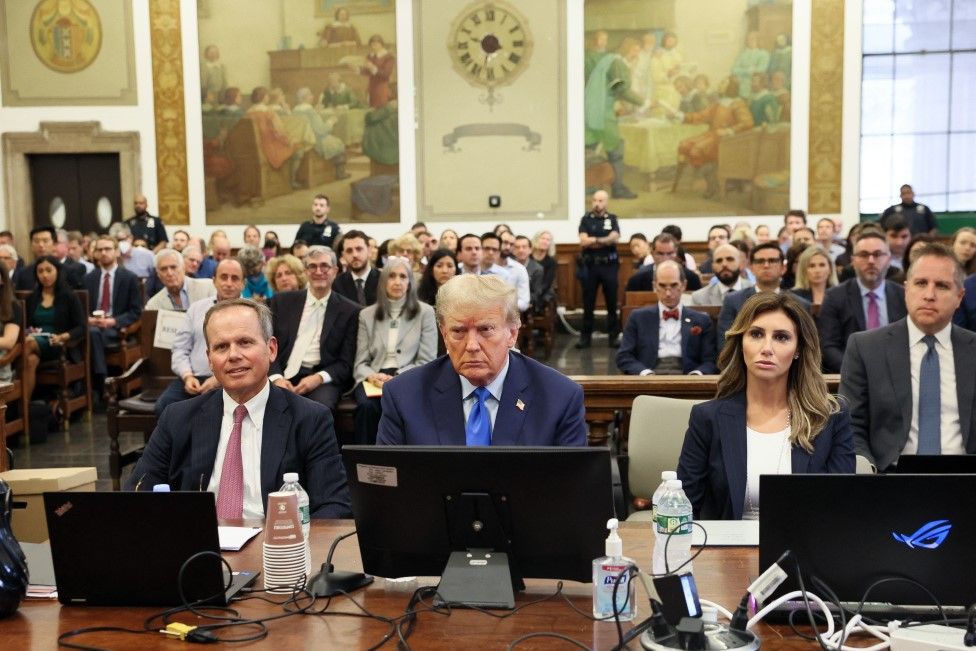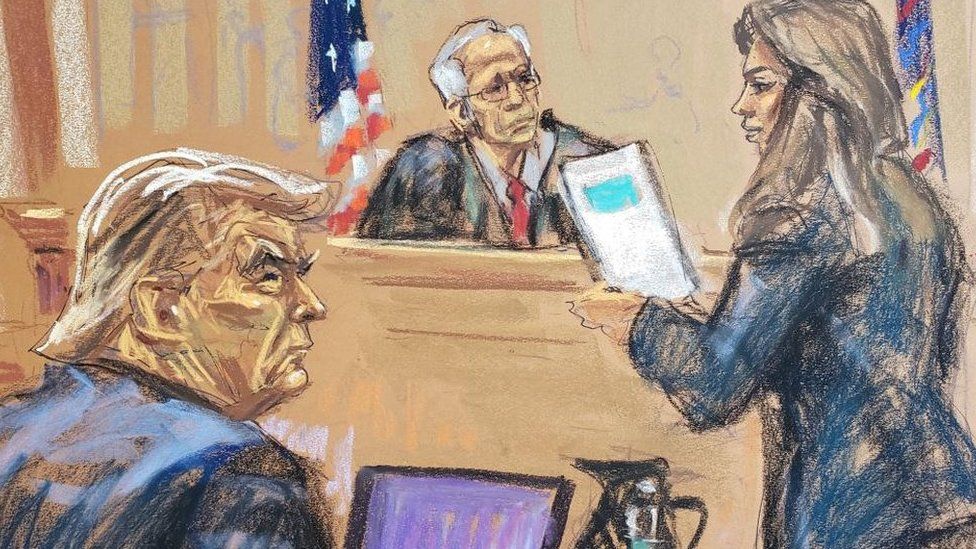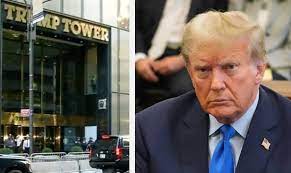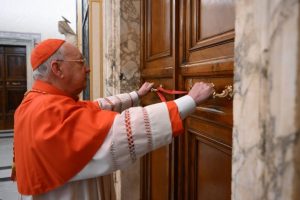On entering the room on Monday dressed in a blue suit, Mr Trump – who turned up voluntarily – looked ahead as he walked past the prosecutor who brought the case.

State’s attorney general Letitia James, sitting in the front row, averted her gaze.
Their paths did not cross for the rest of opening statements as both sides laid out their case.
Mr Trump, the Trump Organization, several executives and two of his children – Donald Jr and Eric – are the defendants in the civil trial in New York Superior Court.
They are accused of fraud, falsification of business records, issuing false financial statements and conspiracy.
As the trial got under way, the former president occasionally glanced in the direction of Judge Arthur Engoron as he addressed the court.
Moments beforehand, in a tirade outside court that echoed across the chamber, Mr Trump had called the judge a “rogue adjudicator”.

Ms James was not spared either in his remarks to reporters at the top of the courtroom steps.
“It’s a scam, it’s a sham. Just so you know, my financial statements are phenomenal,” Mr Trump added. “There was no crime – the crime was against me.”
Given the former president’s personal attacks, observers expected a tense atmosphere in the cramped confines of the court. But the three key figures in the legal drama had minimal direct interactions.
While prosecutors set out their case, Mr Trump for the most part sat still, occasionally whispering to his legal team.
Ms James kept her eyes on the lawyer unveiling a visual presentation that accompanied her team’s opening statements.

Proceedings began with her team accusing Mr Trump and his co-defendants of intentionally and persistently committing fraud, which reaped Mr Trump over $100m (£83m).
Last week Judge Engoron ruled against Mr Trump in a central claim of the lawsuit, finding that he had overvalued his properties by hundreds of millions of dollars in order to get favourable bank loans.
Mr Trump’s lawyers addressed the court shortly afterwards, attacking the New York attorney general’s arguments. Alina Habba said Ms James’ goal as attorney general was to “go to work, get Trump and go home”.
She claimed that Mr Trump did not inflate the value of his assets – including his Mar-a-Lago resort in Florida.
Real estate was malleable, she said, and his properties were “Mona Lisas” – Mar-a-Lago would sell for at least a billion dollars, she argued.
But before lunch, proceedings turned increasingly fractious.
Mr Trump’s attorney, Chris Kise, argued with Judge Engoron about issues including whether expert opinion counted as testimony.
And Ms Habba’s attacks on Ms James drew Judge Engoron’s ire. The judge said he had already dismissed claims that the suit was politically motivated.
The afternoon in court proved calmer, with former Trump accountant Donald Bender testifying as the first witness called by the attorney general’s office.
Mr Bender said he had worked on Trump’s tax returns and completed accounting work for Mr Trump’s corporate entities.
He testified in a criminal trial against the Trump Organization in Manhattan last year, claiming the company sought to evade taxes on bonuses and other luxury benefits
His two-hour testimony on Monday – largely focused on technical questions about his work for the Trump Organization – capped off the first day of the three-month long trial.
The case will be decided by Judge Engoron, not a jury.
None of the defendants will face jail time if convicted, because this is a civil case not a criminal one.
Ms James is seeking $250m (£207m) and sanctions that could prevent the Trumps from doing business in the state of New York.
There is even the possibility that Mr Trump could lose some of the properties that have become a signature part of his brand.
The stakes could not be higher.
Source: BBC NEWS




















Add Comment